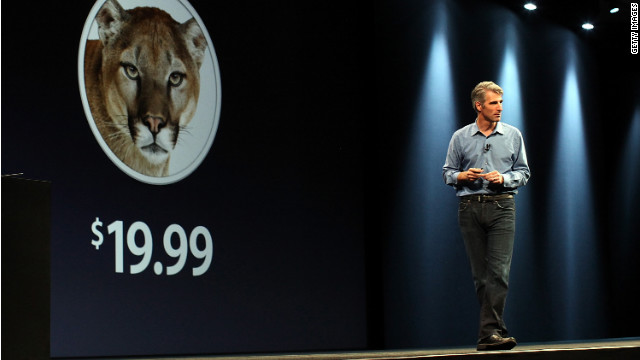
How do you prep a venerable computer operating system to flourish in late 2012 and beyond?
We're about to get answers to that question from both Apple and Microsoft, in the form of major upgrades to the world's two most popular operating systems. Apple's new Mac software, OS X 10.8 Mountain Lion, is hitting the Mac App Store today; Microsoft's Windows 8 is due just three months later, on October 26.
Superficially, the two updates share big-picture themes. Both draw inspiration from their makers' mobile operating systems, Apple's iOS and Microsoft's Windows Phone. Each uses an Internet service -- iCloud in the case of Mountain Lion, SkyDrive with Windows 8 -- to share data, settings and other items between multiple computers and other devices.
But what's most striking about Mountain Lion and Windows 8 isn't the similarities, but their fundamentally different visions. To swipe a line from Yogi Berra, both Apple and Microsoft see a fork in the road -- and they're taking it.
Microsoft thinks the future is about one operating system that runs on all sorts of gadgets. It's de-emphasizing the Windows look and feel that haven't changed much since the mid-1990s in favor ofMetro, a bold, touch-friendly interface designed to work on everything from hulking tower PCs to slim, iPad-esque tablets. The company is even going to sell some of those tablets itself: The uncommonly slick Surface is the first-ever PC to carry the Microsoft name.
Apple, by contrast, doesn't need to give OS X a radical mobile makeover or gin together an iPad-esque tablet -- hey, it's already got the iPad. So Mountain Lion is built for precisely the same machines as previous versions: MacBooks, iMacs, Mac Minis and Mac Pros, equipped with a keyboard and either an oversized touchpad or a touch-sensitive Magic Mouse. This software is happy to be a conventional (albeit ambitious) operating system for conventional (albeit ambitious) computers.
Full News...
No comments:
Post a Comment